Online Class: Nonfiction Writing 101

no certificate
with CEU Certificate*
-
13Lessons
-
25Exams &
Assignments -
2,006Students
have taken this course -
9Hours
average time -
0.9CEUs
Course Description
Mastering the Craft of Nonfiction Writing
In a world oversaturated with information, the art of nonfiction writing stands as a testament to the pursuit of truth, authenticity, and in-depth exploration of experiences and events. From the comprehensive histories penned by biographers to the daily news snippets curated by journalists, nonfiction embodies an expansive spectrum of writing that roots itself in verifiable reality.
Recent data suggests that the consumption of nonfiction content, particularly online, has seen a surge with the growing demand for genuine, insightful, and well-researched information. In such a climate, equipping oneself with superior nonfiction writing skills can be a game-changer.
Welcome to our advanced course in nonfiction writing, where we endeavor to hone your skills beyond rudimentary levels, readying you for the competitive world of content creation and publishing. This course delves deep into not just the 'how' but also the 'why' of nonfiction writing, ensuring a holistic learning experience.
Lesson 1: The Editor's Perspective
Before pen meets paper, learn the mindset of an editor. Understand the nuances of content selection, quality control, and reader engagement from an editorial vantage point.
Lesson 2: Deciphering the Format
Is it an article, a project, or a book you wish to write? Determine the ideal format for your content based on its length, depth, and target audience.
Lesson 3: Crafting the Perfect Subject & Title
Discover techniques to select compelling subjects, design captivating titles, and engage your reader from the get-go.
Lesson 4: In-depth Research
Good nonfiction is grounded in thorough research. Acquaint yourself with tools, methodologies, and ethics in collecting and presenting information.
Lesson 5: Scouting the Competition
In a competitive landscape, understanding what others are doing can give you an edge. Learn to analyze the market and identify gaps you can fill with your unique perspective.
Lesson 6: Building Structure
Organize your thoughts coherently. Grasp the principles of logical flow, chapter divisions, and maintaining a consistent tone throughout your work.
Lesson 7: Embrace the Writer Within
Delve into the psychology of writing. Explore personal barriers, understand your writing style, and celebrate the unique voice you bring to the table.
Lesson 8: Conquering Writer’s Block
Stagnation hits the best of us. Unearth strategies to rejuvenate your creativity, maintain momentum, and ensure consistent progress in your writing journey.
Lesson 9: Rhythmic Writing
Good writing resonates. Unravel the art of pacing, tone variation, and how to revise content to maximize impact and readability.
Lesson 10: Technical Perfection
No content shines without impeccable grammar, spelling, and punctuation. Reinforce your command over the language, ensuring clarity and precision.
Lesson 11: The Editing Mantra
The first draft is just the beginning. Immerse in iterative editing processes, refining content to mirror publishing standards.
Lesson 12: Upholding Authenticity
Nonfiction's essence lies in its truthfulness. Grasp the importance of fact-checking, sourcing, and proper notation to uphold your credibility.
Lesson 13: The Final Presentation
Once written, the presentation is paramount. Learn about layout decisions, spacing nuances, and formatting techniques to ensure your work is not just well-written but also well-presented.
In essence, this course promises not just to teach you nonfiction writing, but to immerse you in its universe. By its culmination, you should not only be adept at creating compelling content but also be well-versed in presenting it to publishers and readers alike. Remember, the essence of a writer lies in writing. So, let's dive in and start crafting!
Course Motivation
Your Subject and Your Treatment of Your Subject
The Marketability of Your Subject
Remember, the editor you submit your book or article to will look at the marketability of the subject. How broadly will the book hit public interest? How specialized and in demand is the subject? How specialized and small is the market? Does the writer bring a fresh and unique treatment to their subject? Do they touch on a concern that has been overlooked or ignored? Make your treatment of the subject one that increases your book's marketability.
Core Buyers
How Broad is Your Market?
For example, if you are writing a nonfiction article on art history, you may want to broaden your market by writing on a specific or obscure local artist that impacted the regional art sensibilities in a permanent or a trendy way. By choosing your subject with such concerns you accomplish some important marketing needs of your editor. You are selecting a broad market, art history, and you are specializing at the same time. This is a powerful combination that editors appreciate because it helps eliminate their concerns for a broad appeal. In taking this approach, your editor knows that they can market broadly to local, regional, and national niches of art lovers. You have your editor's attention and interest.
Buyer Value
When you tackle your subject with freshness and authority, then you are adding value to the buyer. You are giving the editor a good ROI for the money he pays you and the reader feels that he or she has spent their time (and possibly money) well. If the editor or reader does not have a sense of added value when they read your article, then you will likely not receive a contract.
- Completely Online
- Self-Paced
- Printable Lessons
- Full HD Video

- 6 Months to Complete
- 24/7 Availability
- Start Anytime
- PC & Mac Compatible
- Android & iOS Friendly
- Accredited CEUs

Course Lessons
Lesson 1: Before You Start, Think Like An Editor
 Lesson 1 Video
Lesson 1 Video Lesson discussions: Reasons for Taking this Course
Lesson discussions: Reasons for Taking this Course Complete Assignment: An Introduction
Complete Assignment: An Introduction Complete: Lesson 1 Assignment
Complete: Lesson 1 Assignment Assessment: Lesson 1: Before You Start, Think Like An Editor
Assessment: Lesson 1: Before You Start, Think Like An Editor
Lesson 2: Article, Project, or Book?
 Lesson 2 Video
Lesson 2 Video Lesson discussions: Types of Nonfiction
Lesson discussions: Types of Nonfiction Complete: Lesson 2 Assignment
Complete: Lesson 2 Assignment Assessment: Lesson 2: Article, Project or Book?
Assessment: Lesson 2: Article, Project or Book?
Lesson 3: Subject, Title, and Subtitles
 Lesson 3 Video
Lesson 3 Video Complete: Lesson 3 Assignment
Complete: Lesson 3 Assignment Assessment: Lesson 3: Subject, Title and Subtitles
Assessment: Lesson 3: Subject, Title and Subtitles
Lesson 4: Researching Your Subject
 Lesson 4 Video
Lesson 4 Video Lesson discussions: Research
Lesson discussions: Research Assessment: Lesson 4: Researching Your Subject
Assessment: Lesson 4: Researching Your Subject
Lesson 5: Reviewing Your Competition
 Lesson 5 Video
Lesson 5 Video Complete: Lesson 5 Assignment
Complete: Lesson 5 Assignment Assessment: Lesson 5: Reviewing Your Competition
Assessment: Lesson 5: Reviewing Your Competition
Lesson 6: Structure and Organization
 Lesson 6 Video
Lesson 6 Video Assessment: Lesson 6: Structure and Organization
Assessment: Lesson 6: Structure and Organization
Lesson 7: Writers Write; Getting Comfy in Your Own Skin
 Lesson 7 Video
Lesson 7 Video Complete: Lesson 7 Assignment
Complete: Lesson 7 Assignment Assessment: Lesson 7: Writers Write; Getting Comfy in Your Own Skin
Assessment: Lesson 7: Writers Write; Getting Comfy in Your Own Skin
Lesson 8: Get to the Finish Line; What to Do When You Hit a Block
 Lesson 8 Video
Lesson 8 Video Lesson discussions: Writer's Block
Lesson discussions: Writer's Block Complete: Lesson 8 Assignment
Complete: Lesson 8 Assignment Assessment: Lesson 8: Get To The Finish Line; What To Do When You Hit A Block
Assessment: Lesson 8: Get To The Finish Line; What To Do When You Hit A Block
Lesson 9: Rewriting and Rhythm; Polishing for Your Audience
 Lesson 9 Video
Lesson 9 Video Complete: Lesson 9 Assignment
Complete: Lesson 9 Assignment Assessment: Lesson 9: Rewriting and Rhythm; Polishing for Your Audience
Assessment: Lesson 9: Rewriting and Rhythm; Polishing for Your Audience
Lesson 10: Spelling, Grammar, and Proper Punctuation
 Lesson 10 Video
Lesson 10 Video Complete: Lesson 10 Assignment
Complete: Lesson 10 Assignment Assessment: Lesson 10: Spelling, Grammar and Proper Punctuation
Assessment: Lesson 10: Spelling, Grammar and Proper Punctuation
Lesson 11: Edit and Edit Again
 Lesson 11 Video
Lesson 11 Video Assessment: Lesson 11: Edit and Edit Again
Assessment: Lesson 11: Edit and Edit Again
Lesson 12: Fact Checking and Proper Notation
 Lesson 12 Video
Lesson 12 Video Complete: Lesson 12 Assignment
Complete: Lesson 12 Assignment Assessment: Lesson 12: Fact Checking and Proper Notation
Assessment: Lesson 12: Fact Checking and Proper Notation
Lesson 13: Layout, Proper Spacing, and Format - Your Finished Product
 Lesson 13 Video
Lesson 13 Video Lesson discussions: Course Completion Poll: Your Thoughts; Program Evaluation Follow-up Survey (End of Course); Course Comments
Lesson discussions: Course Completion Poll: Your Thoughts; Program Evaluation Follow-up Survey (End of Course); Course Comments Complete: Lesson 13 Assignment
Complete: Lesson 13 Assignment Assessment: Lesson 13: Layout, Proper Spacing and Format – Your Finished Product
Assessment: Lesson 13: Layout, Proper Spacing and Format – Your Finished Product Assessment: The Final Exam
Assessment: The Final Exam
Learning Outcomes
- Summarize how to think like an editor.
- Define article, project and book.
- Identify subject, title and subtitles.
- Research your subject.
- Review your competition.
- Identify structure and organization.
- Write.
- Summarize what to do when you hit a block.
- Identify what needs to be polished for your audience.
- Perform spelling and grammar check.
- Edit and edit again.
- Fact check and provide proper notation.
- Demonstrate layout, proper spacing and format, and submit your finished product.
- Demonstrate mastery of lesson content at levels of 70% or higher.
Additional Course Information

- Document Your Lifelong Learning Achievements
- Earn an Official Certificate Documenting Course Hours and CEUs
- Verify Your Certificate with a Unique Serial Number Online
- View and Share Your Certificate Online or Download/Print as PDF
- Display Your Certificate on Your Resume and Promote Your Achievements Using Social Media

Choose Your Subscription Plan
No Certificate / No CEUs
This course only
| Includes certificate | X |
| Includes CEUs | X |
| Self-paced |

|
| Instructor support |

|
| Time to complete | 6 months |
| No. of courses | 1 course |
Certificate & CEUs
This course only
| Includes certificate |

|
| Includes CEUs |

|
| Self-paced |

|
| Instructor support |

|
| Time to complete | 6 months |
| No. of courses | 1 course |
Certificates & CEUs
Includes all 600+ courses
| Includes certificate |

|
| Includes CEUs |

|
| Self-paced |

|
| Instructor support |

|
| Time to complete | 12 Months |
| No. of courses | 600+ |
Certificates & CEUs
Includes all 600+ courses
| Includes certificate |

|
| Includes CEUs |

|
| Self-paced |

|
| Instructor support |

|
| Time to complete | 24 Months |
| No. of courses | 600+ |
Student Testimonials
- "So far she is my favorite instructor on Universal class. Her classes are packed with very informative lessons. Nothing is fluff." -- Erin C.
- "The course give me valuable information concerning how professional writing is done; how to please an editor, how to displease an editor, where to look for potential markets, developing a rhythm in writing ,using headings and subheadings to hold a reader's interest, etc. Most of the lessons, I realize, will be most valuable in use as reference materials. I wish to thank the instructor for an enjoyable class. I plan to take more from her. I would recommend her highly to friends planning to take courses in this area." -- Bill M.
- "Very helpful instructor." -- Tracy C.
- "This course was great." -- Janet M.
- "The various lessons were very helpful in gaining knowledge about writing." -- Tenika J.
- "I liked how the instructor didn't just grade the assignments, but gave comments about my work. She seemed very knowledgeable in the subject. I will be taking other classes from Universal." -- Laura V.
- "The lesson material and the related links were most helpful. I liked the condensed comprehensive lessons, they contained essential information without being overwhelming. The links contained excellent resources that I can use any time. The lessons were well thought out and flowed in a logical manner and was very useful. The instructor was prompt in marking." -- Dyanne C.
- "The instructor gave excellent advice and was very knowledgeable and helpful. The entire course was helpful; learning everything to get started with nonfiction writing; how to succeed at it. Lots of excellent advice; extremely helpful." -- Heather P.
- "What a great teacher for this class, I thought." -- S. Marie V.
Related Courses
-
 87 hours
8.7 CEUs
Writing Help Course Bundle
+ More Info
87 hours
8.7 CEUs
Writing Help Course Bundle
+ More Info
-
 7 hours
0.7 CEUs
Writing Women's Fiction
+ More Info
7 hours
0.7 CEUs
Writing Women's Fiction
+ More Info
-
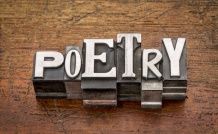 17 hours
1.7 CEUs
Poetry Writing 101
+ More Info
17 hours
1.7 CEUs
Poetry Writing 101
+ More Info
-
 9 hours
0.9 CEUs
Mystery Writing
+ More Info
9 hours
0.9 CEUs
Mystery Writing
+ More Info
-
 19 hours
1.9 CEUs
Creative Writing 101
+ More Info
19 hours
1.9 CEUs
Creative Writing 101
+ More Info
-
 11 hours
1.1 CEUs
Journaling and Memoir Writing
+ More Info
11 hours
1.1 CEUs
Journaling and Memoir Writing
+ More Info
-
 5 hours
0.5 CEUs
Writing the Great American Short Story
+ More Info
5 hours
0.5 CEUs
Writing the Great American Short Story
+ More Info
-
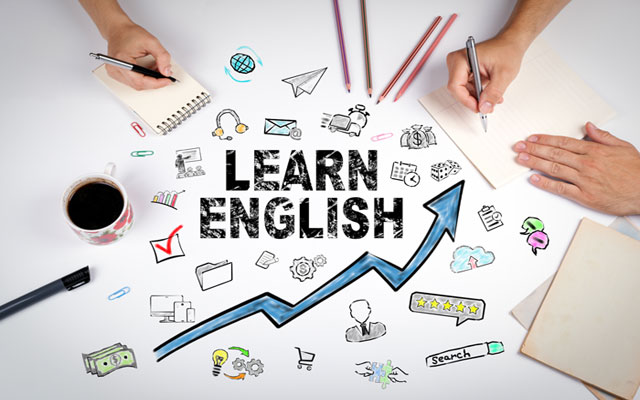 6 hours
0.6 CEUs
English Grammar Level 3
+ More Info
6 hours
0.6 CEUs
English Grammar Level 3
+ More Info
-
 12 hours
1.2 CEUs
Writing Effective Persuasion
+ More Info
12 hours
1.2 CEUs
Writing Effective Persuasion
+ More Info
-
 29 hours
2.9 CEUs
Writing Basics 101: Spelling, Grammar, Punctuation, Writing Structures
+ More Info
29 hours
2.9 CEUs
Writing Basics 101: Spelling, Grammar, Punctuation, Writing Structures
+ More Info
-
 11 hours
1.1 CEUs
How to Write Short Stories for Children
+ More Info
11 hours
1.1 CEUs
How to Write Short Stories for Children
+ More Info
-
 12 hours
1.2 CEUs
Screenwriting 101
+ More Info
12 hours
1.2 CEUs
Screenwriting 101
+ More Info
-
 6 hours
0.6 CEUs
Freelance Writing 101
+ More Info
6 hours
0.6 CEUs
Freelance Writing 101
+ More Info
-
 14 hours
1.4 CEUs
Creative Writing for Beginners
+ More Info
14 hours
1.4 CEUs
Creative Writing for Beginners
+ More Info
-
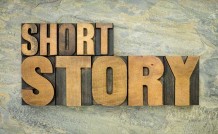 11 hours
1.1 CEUs
How to Write a Short Story
+ More Info
11 hours
1.1 CEUs
How to Write a Short Story
+ More Info
-
 14 hours
1.4 CEUs
Journalism 101
+ More Info
14 hours
1.4 CEUs
Journalism 101
+ More Info
-
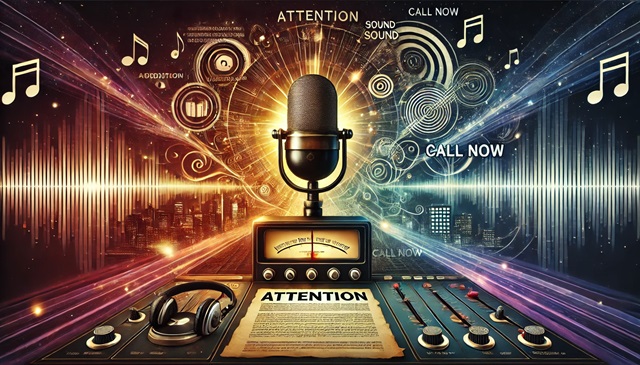 12 hours
1.2 CEUs
Advertising, Marketing and Sales Writing
+ More Info
12 hours
1.2 CEUs
Advertising, Marketing and Sales Writing
+ More Info
-
 12 hours
1.2 CEUs
Paranormal Romance Writing
+ More Info
12 hours
1.2 CEUs
Paranormal Romance Writing
+ More Info
-
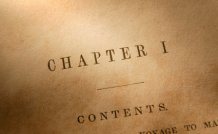 23 hours
2.3 CEUs
Historical Fiction Writing
+ More Info
23 hours
2.3 CEUs
Historical Fiction Writing
+ More Info
-
 9 hours
0.9 CEUs
Nonfiction Writing 101
+ More Info
9 hours
0.9 CEUs
Nonfiction Writing 101
+ More Info
-
 11 hours
1.1 CEUs
Humor Writing 101
+ More Info
11 hours
1.1 CEUs
Humor Writing 101
+ More Info
-
 10 hours
1.0 CEUs
Travel Writing 101
+ More Info
10 hours
1.0 CEUs
Travel Writing 101
+ More Info
-
 9 hours
0.9 CEUs
ABCs of Technical Writing
+ More Info
9 hours
0.9 CEUs
ABCs of Technical Writing
+ More Info
-
 12 hours
1.2 CEUs
How to Write Case Studies
+ More Info
12 hours
1.2 CEUs
How to Write Case Studies
+ More Info
-
 16 hours
1.6 CEUs
Advertising Copywriter
+ More Info
16 hours
1.6 CEUs
Advertising Copywriter
+ More Info
-
 11 hours
1.1 CEUs
Writing Effective Emails in the Workplace
+ More Info
11 hours
1.1 CEUs
Writing Effective Emails in the Workplace
+ More Info









